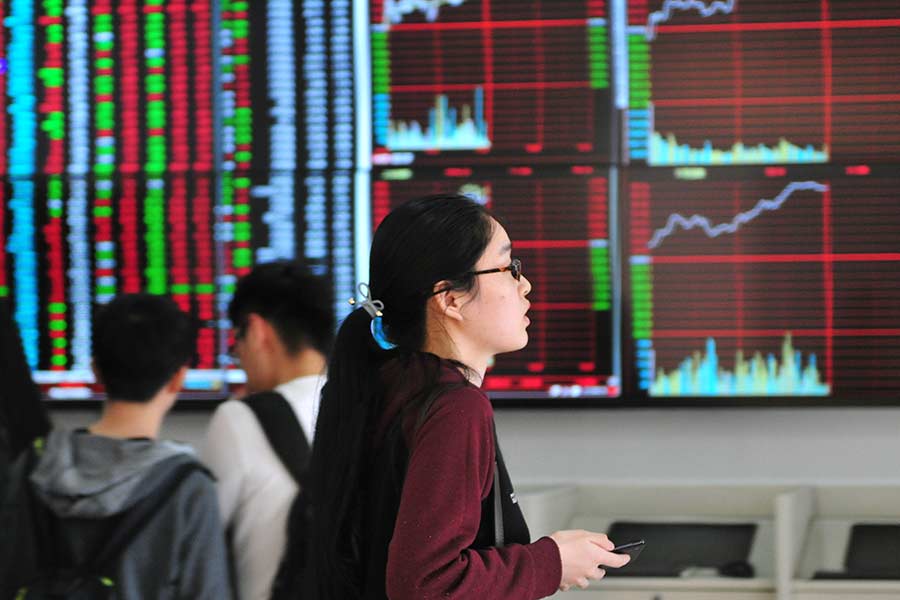Why predictability on bourses amid uncertainties is a virtue


If there was something that was as per expectations last year, it must have been the disruptions in the wake of the unexpected COVID-19 pandemic.
I remember in the second half of February last year, I finally heaved a big sigh of relief as the virus showed preliminary signs of containment after nationwide lockdowns. But that hope was shattered, unexpectedly, by the harsh reality that it was actually a pandemic that wouldn't end in a hurry.
It was also the time when heated discussions erupted on whether the virus would delay China's original plan of implementing the registration-based initial public offering system on Shenzhen's ChiNext board by the end of the year.
On Feb 29, the State Council, China's Cabinet, reiterated its determination to implement the new system on ChiNext as scheduled. That resolve was certainly not what some skeptical market people had expected.
Since I specialize as a market reporter, I think I know the kind of steely resolve it takes to make such firm decisions in trying circumstances as the one the State Council made.
On the one hand, the new system would be a significant reform to redress the long-standing lack of financial support for innovation-and it is not advisable to change schedules already announced for the sake of maintaining a stable expectation of policy.
But, on the other hand, the reform carries the risk of hurting investor sentiment, as more IPOs would be launched under the reform and could strain market liquidity in the short term, especially as uncertainties of the pandemic were sweeping global markets.
The decision was to prove the right one. The first batch of IPOs under the registration-based system were made on ChiNext in August, and the ChiNext index went up by nearly 60 percent through the year to close at 2840.80 points on Dec 25.
Financial opening-up agenda has not been disrupted by the COVID-19 pandemic either. The central bank announced on Feb 11 it approved the application of Mastercard to set up a domestic bank card clearing institution, when the virus was yet to be brought under control.
Later in the year, China lifted foreign ownership caps on securities firms and mutual fund companies and broadened the investment scope of qualified foreign institutional investor programs.
With liberalization deepened, the market has showed a better function in selecting the strong while weeding out the weak.
As more growth firms listed on the bourses, total IPO proceeds in the A-share market notched a 10-year high of about $72 billion in 2020, based on EY's estimate. The number of A-share delistings in 2020, meanwhile, reached 16 as of Dec 25, an all-time yearly high, according to Wind Info.
One could attribute the steady progress in China's reform and opening-up of its financial markets to the early containment of COVID-19. But it was the country's unswerving commitment to market liberalization even during the hardest times that shored up global investors' confidence in the Chinese market, providing predictability amid huge uncertainties.
Sherry Madera, chief industry and government affairs officer with Refinitiv, said that China has been very consistent in financial opening-up, and its one-directional policy moves will continue to attract long-term investors. But there is still a lot of room for opening the market wider.
Definitely, China's 30-year-old capital market remains far from being as mature as overseas peers like those in New York and London.
Investors still remember China-based Luckin Coffee Inc's financial misreporting in the US that revealed loopholes in cross-border securities regulation, followed by some intended debt default cases later in the year.
Speculations were rife over some listed companies that were perceived as lacking in growth prospects, indicating that herd mentality still prevails among some retail investors.
The annual Central Economic Work Conference has mapped out key tasks for the capital market to achieve healthy development this year. These include strengthening the governance of financial institutions, improving the quality of listed firms, and intensifying crackdown on deliberate bond defaults.
I believe these moves will likely boost direct financing and achieve breakthroughs in the new year. Continuous economic upgrade will nurture more quality listed names, boosting investor confidence.
After all, as the whole world has seen, the consistency in the country's capital market reforms has helped China withstand the difficult test of 2020, bringing the market into a more market-oriented, rules-based and internationalized position.




































